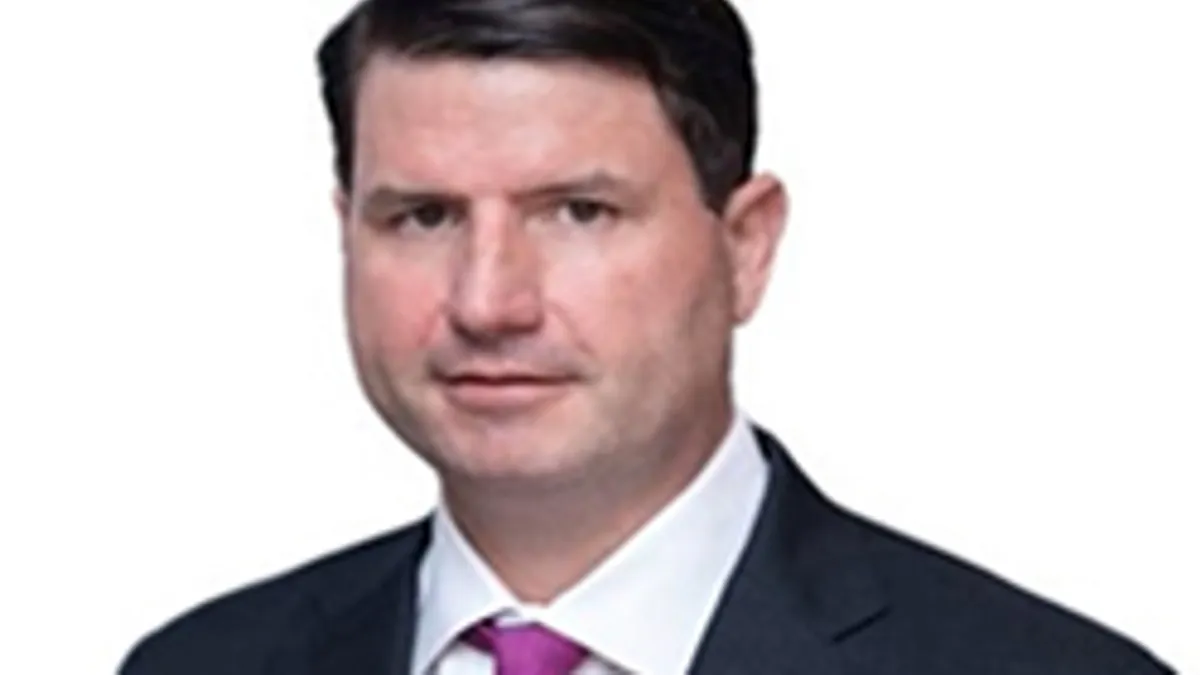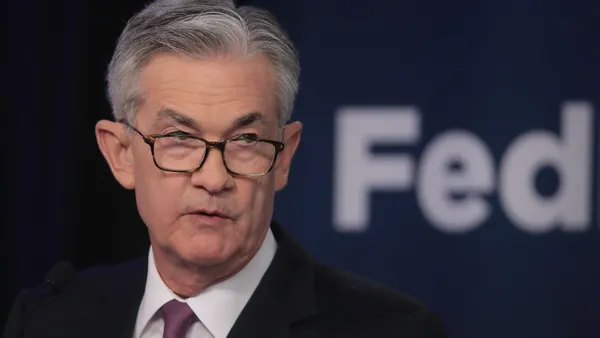Dive Brief:
-
The American Transaction Processors Coalition appointed Elavon CEO Jamie Walker, 45, as its new chairman replacing FIS Executive Royal Cole, 59. The decision to select Walker was the result of a unanimous vote by the trade group’s board of directors at its second-quarter meeting on June, according to a press release last week regarding the change.
-
The coalition, which has 17 corporate members, will mainly remain on the same course that it has been on in the past couple years under Cole’s leadership, said ATPC Executive Director H. West Richards, although he expects about a fifth of the agenda will chart new territory, including working with the recently installed Biden Administration and perhaps on expanded work with state legislatures.
- The group, which represents the interests of big payments processors, is in the process of picking a vice chairman, who will move into the chairman role at some point. There are three candidates currently for that multi-year commitment, Richards said in the interview this week. He expects the board size will increase somewhat as well, from nine corporate members currently to between 12 and 14 members, he said. (There are also an additional seven former and honorary members on the board, a spokesman said.)
Dive Insight:
The ATPC, which represents major payments processing companies that include Fiserv and ACI Worldwide, advocates for its members interests at the federal and state government levels, and focuses educational efforts on issues important to the industry, such as cybersecurity.
The COVID-19 pandemic is shaping some new priorities for the ATPC’s agenda. There is a need for “adaptation to the brave new world we’re in,” West said. “We humans on planet earth are experiencing the largest revolution in the way money is exchanged and the payments industry is very much in the middle of that seachange,” he said.
It was the industry’s prior investment in a digital infrastructure that allowed it to help keep the economy going during the COVID-19 pandemic, West noted. “If you had an economic situation where we couldn't get food, goods and transportation online, you would be looking at a very challenging economic environment,” he said.
Ongoing innovation, which is happening at a breakneck pace in the industry, will continue to drive the industry, he predicted. “I can't remember when it’s more important and relevant than right now,” West said.
A slew of fintech companies are targeting areas of the payments industry for disruption, drawing hundreds of millions in venture capital, and spurring more competition.
The group will follow the agenda set by the Biden Administration, such as with respect to cybersecurity, and may base some new priorities on its policy direction, he said. While the organization has been strong in its home state of Georgia for some time, the coalition may also keep building out an increased presence in Illinois, North Carolina, Ohio, Florida and New York, among other states, he said.
The coalition’s members will determine new aspects of the agenda together, West said. Cole is stepping down from the role because he’s leaving his FIS post as executive vice president of financial institutions payment services this month and that disqualifies him from serving in the role, the ATPC said in the release.
Another area the ATPC may target for deeper exploration is compliance and risks faced by industry participants.
The Atlanta-based organization previously developed such a focus on cybersecurity and intends to keep bolstering that work. West noted that the organization has a director of cybersecurity and a cyber council that works with the federal government. “It’s the one thing that’s consuming everybody right now—every CEO (in the payments industry) wakes up every morning thinking about cyber,” West said.
There are many payments industry trade groups that vie for members in the U.S., including Electronic Transactions Association and the recently formed Payments Leadership Council, among others with additional groups in other countries. The ATPC distinguishes itself as being more focused on policy issues and advocacy than on networking or conferences, West said. In addition, the ATPC’s focus on cybersecurity issues also sets it apart, he added.












